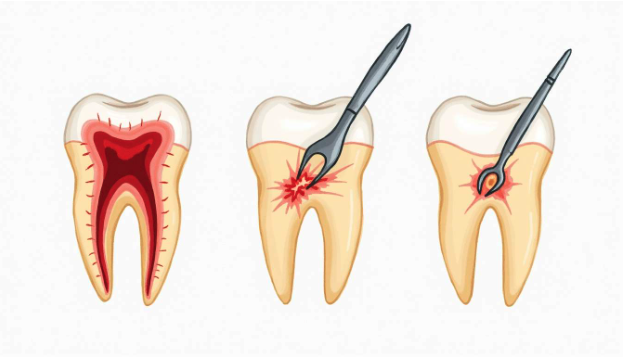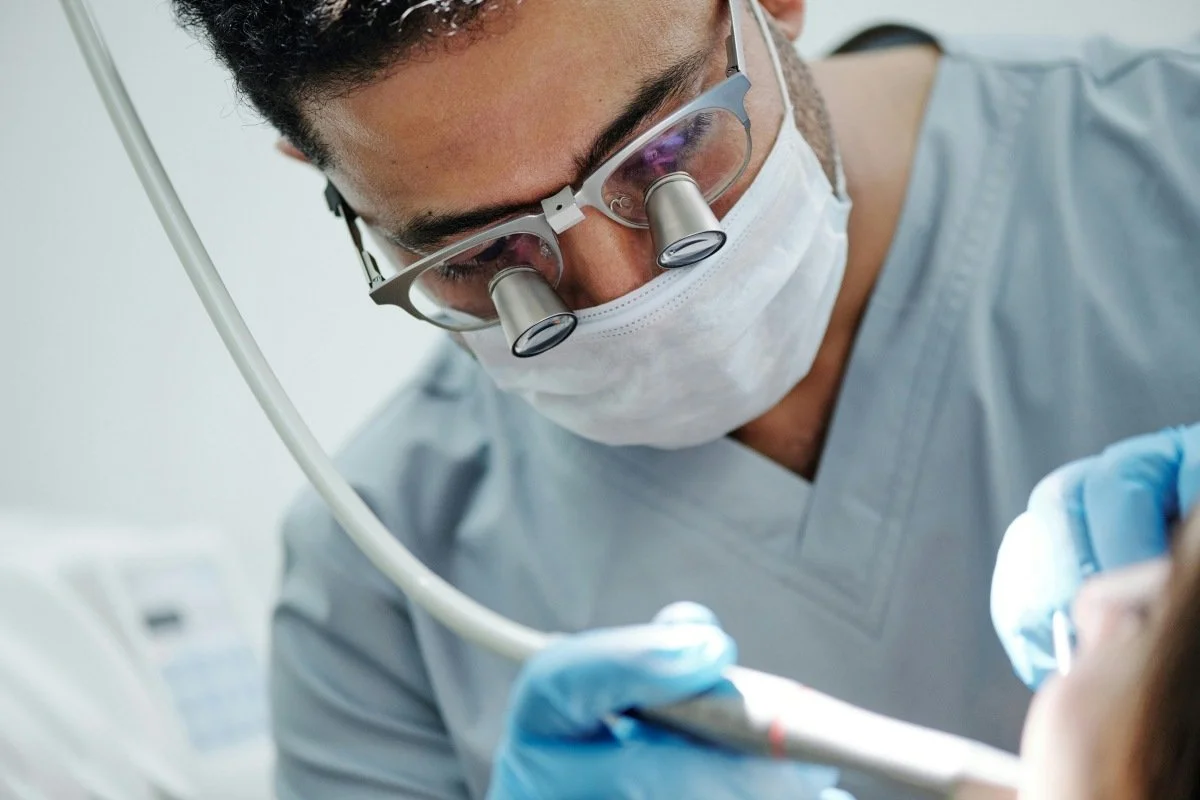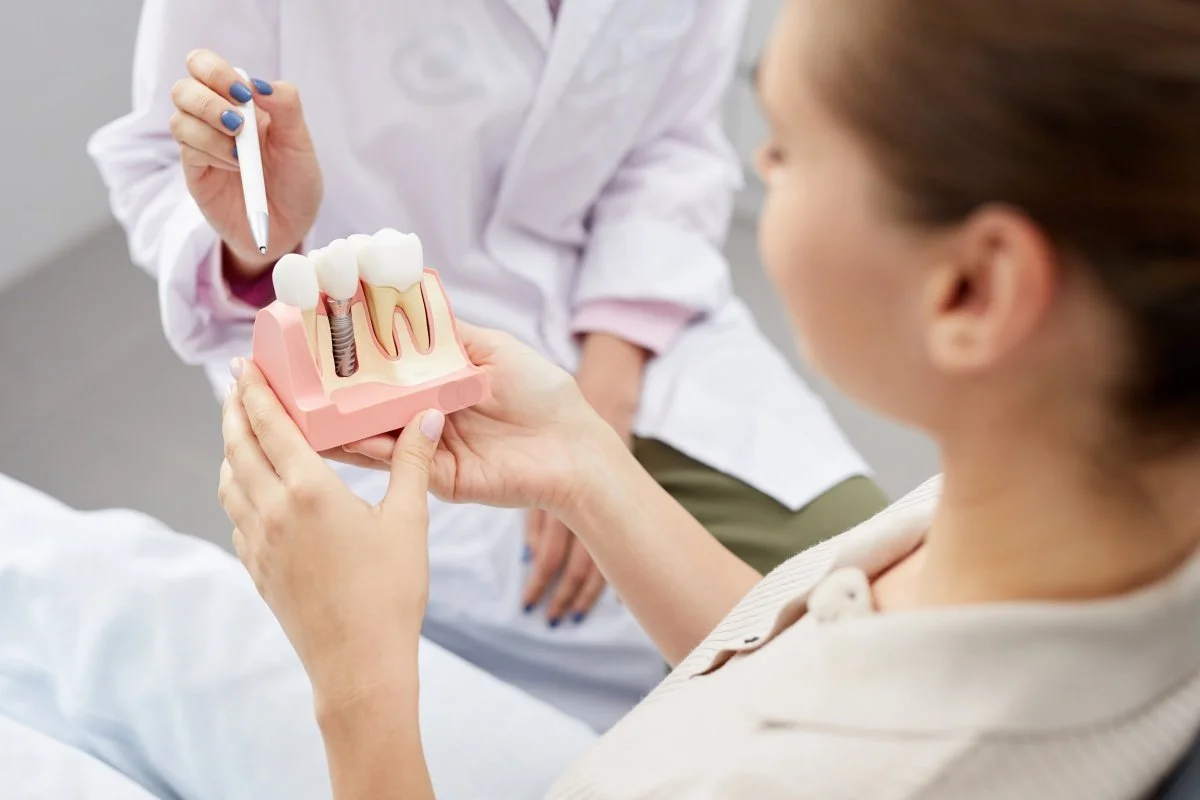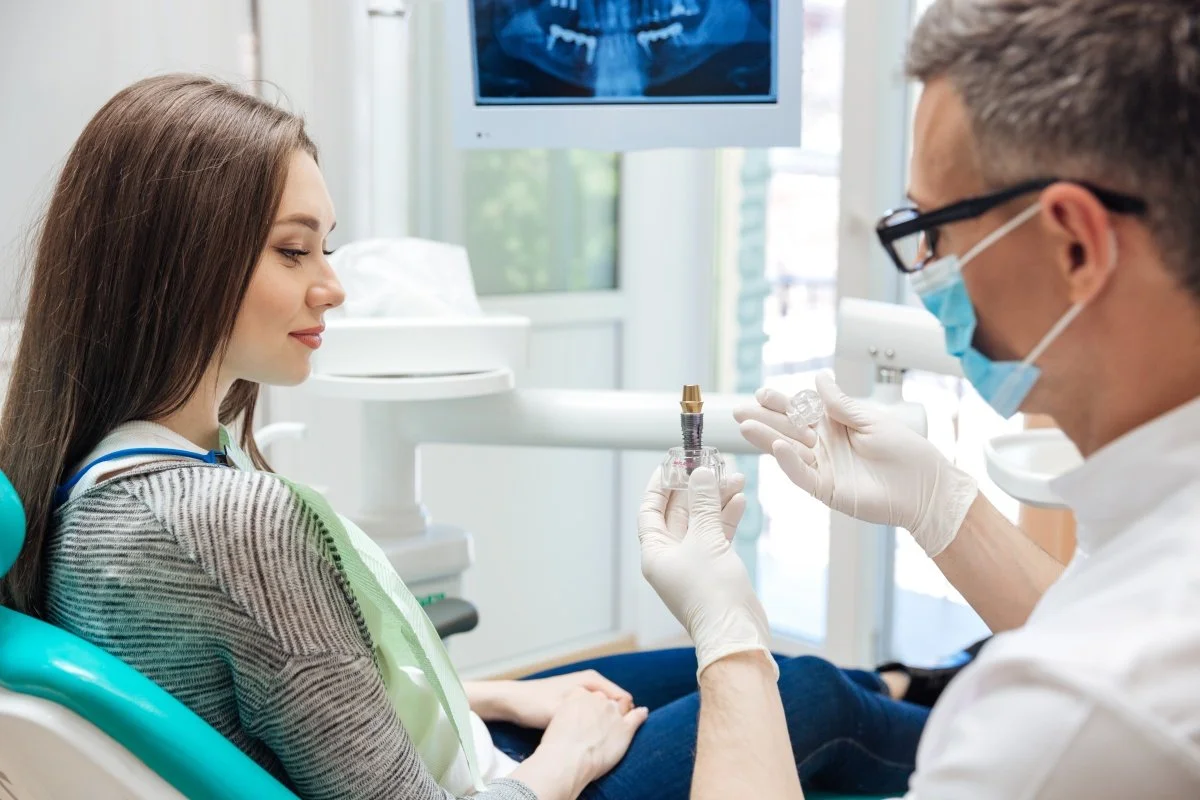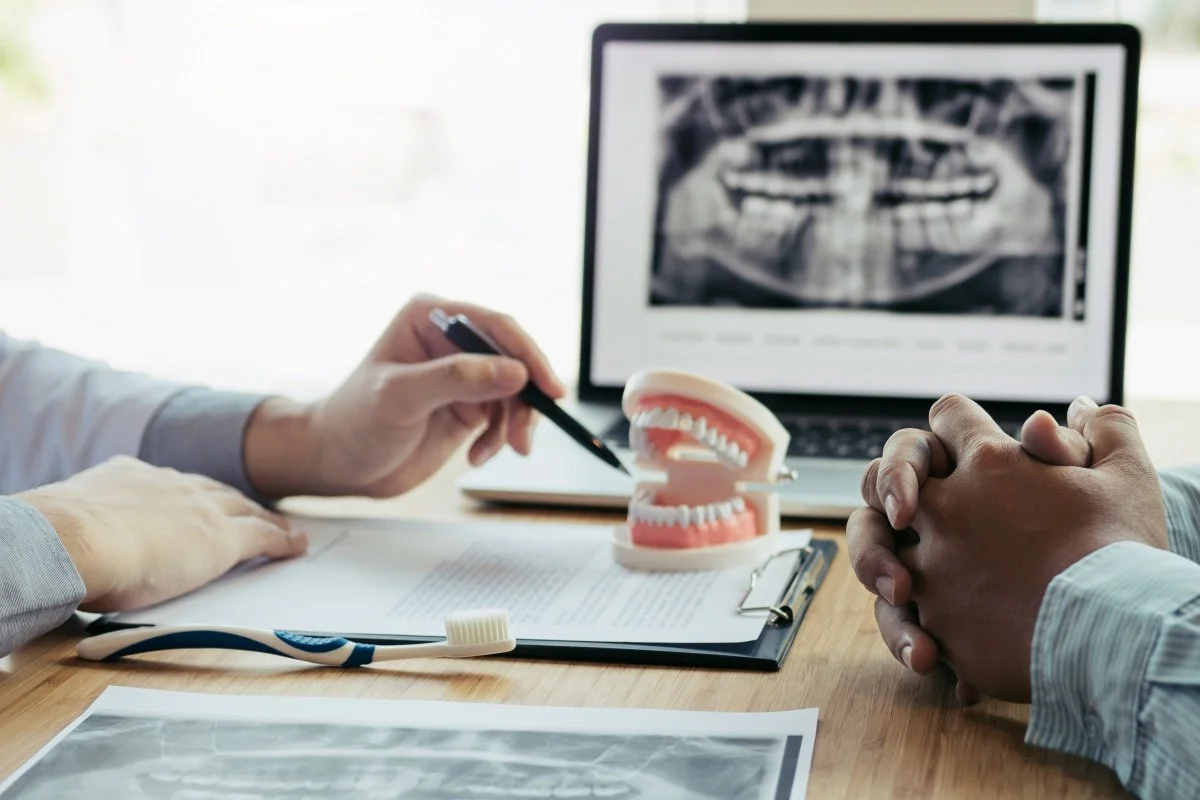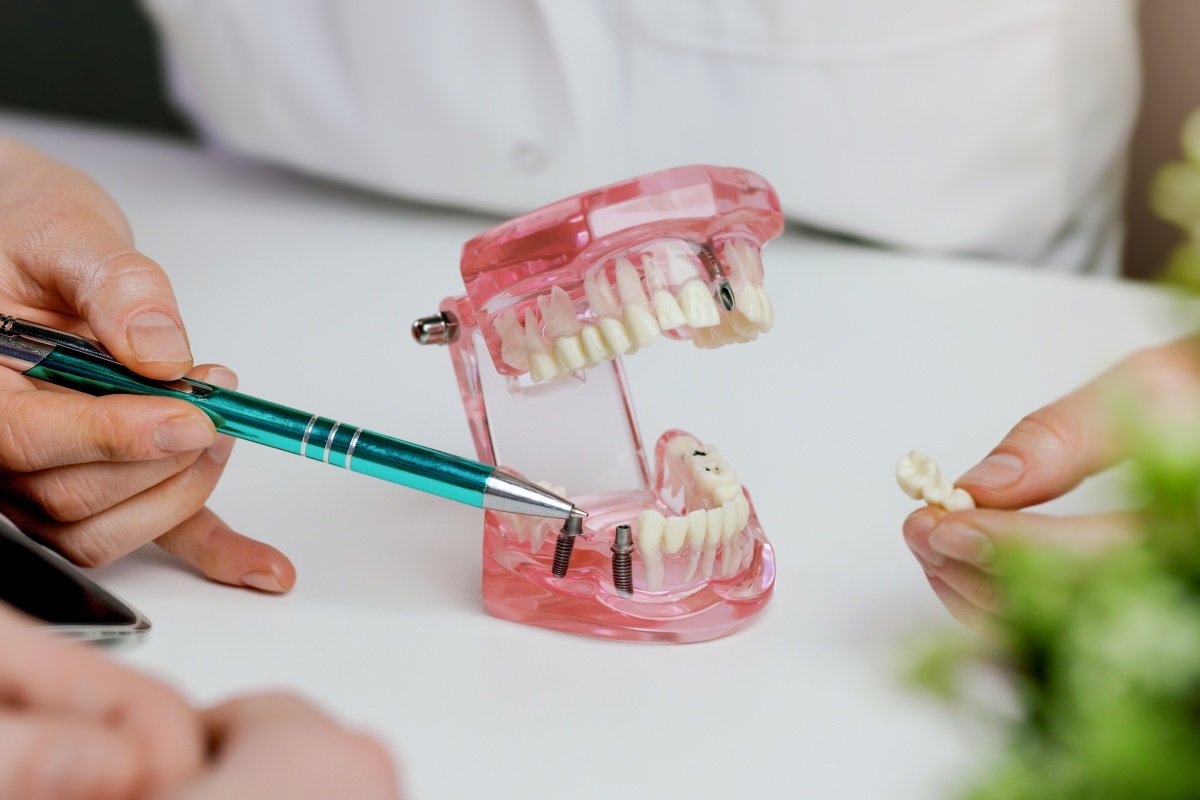Tooth pain doesn't always mean extraction. Learn how dentists evaluate infected or damaged teeth to decide between root canal therapy and extraction—and what factors influence the best choice for saving your smile.
When Is a Toothache an Emergency? Here’s How to Know
Toothaches have a way of showing up at the worst time, and you may wonder whether you can wait or if you need immediate care. They often start as small dental problems but can quickly turn into something more serious. Knowing when a toothache is an emergency can protect your dental health and, in some cases, save a tooth.
In this guide, you’ll learn the key warning signs, what to do, and when to call a dentist or head to the ER.
Types of Dental Pain and Their Causes
Not every toothache is a true emergency. The type of pain you feel often points to what is going on inside the tooth, gums, or even your sinuses. Understanding the pattern helps you judge how quickly to act so you can prevent any further complications.
Here are some of the common types of toothaches and what might cause them:
Brief, zinging sensitivity to hot, cold, or sweet foods often points to minor enamel wear or early decay, especially if you also experience sharp pain when chewing.
Sharp pain when you bite down on one spot may suggest a cracked tooth or a loose filling.
A dull, background ache or pressure in several teeth can sometimes come from sinus problems that refer pain to the upper teeth.
Constant throbbing and severe pain that keeps you up at night, especially with swelling, is a red flag for an abscessed tooth, which is an infection and can become serious.
Any persistent tooth, gum, or jaw pain deserves a call to the dentist. Even a minor toothache that lasts more than a day should be checked.
5 Signs That a Toothache or Dental Pain Is an Emergency
Most mild toothaches can wait for a standard appointment. But if you experience any of the following symptoms, seek urgent care at a nearby emergency dentist the same day.
1. Severe Pain That Doesn’t Go Away
A severe toothache that doesn’t improve with over‑the‑counter pain medicine can indicate deep decay, an exposed nerve, or an abscess.
Warning signs include:
Pain that wakes you at night
Pain that feels like a heartbeat in your tooth
Pain that spreads to your jaw, ear, or head
Tooth pain that disrupts sleep or work means your mouth needs immediate attention from a dentist.
2. Swelling in the Face, Jaw, or Gums
Swelling means inflammation. When it appears around a tooth, it often points to infection. A dental abscess is a pocket of pus caused by bacteria, usually from an untreated cavity, tooth fracture, or prior trauma that has been left untreated.
Facial swelling becomes an emergency if you notice:
Puffiness spreading into your cheek, under your jaw, or near your eye
Swollen lymph nodes in your neck
Trouble opening your mouth
If swelling spreads beyond the immediate area of the tooth, the infection can move into deeper spaces of the neck or even the bloodstream, which can be life-threatening in rare cases.
Swelling around wisdom teeth or impacted wisdom teeth can also threaten surrounding teeth and should be treated quickly.
3. Sudden Tooth Sensitivity and Discomfort
Sensitivity by itself doesn’t always mean an emergency. But sudden, severe sensitivity that appears out of nowhere may suggest:
A cracked or broken tooth
A large cavity close to the nerve and tooth root
Recent trauma to the tooth
Cracked teeth are considered dental emergencies because they can worsen quickly and may allow bacteria to reach the pulp (the center of your tooth that contains nerves, blood vessels, and connective tissue).
If sensitivity turns into sharp pain or lingers for many seconds after the hot or cold is gone, call a dentist right away.
4. Bleeding Gums and a Bad Taste in Your Mouth
Bleeding when you brush your teeth can be a sign of irritated gum tissue or gum disease. But heavy, ongoing bleeding with tooth pain may be more serious. Swelling, bleeding, bad breath, and bad taste can all accompany infection around a tooth.
A persistent bad taste, or a rush of foul‑tasting fluid in your mouth, may mean an abscess has started to drain. But you still need urgent care. Infection can flare again or spread, even if the pressure and pain briefly ease.
5. Fever Accompanied by Tooth Pain
When you have a fever with a toothache, it may mean the infection is spreading beyond the tooth itself. Get immediate help if you have:
Fever and facial swelling
Chills, fatigue, or feeling very unwell
Trouble swallowing or breathing
Those symptoms cross the line from a dental emergency into a possible medical emergency.
What to Do in a Dental Emergency
When you realize something is wrong, it helps to know whom to call first. Here’s when you should contact your dentist for emergency treatment and when to go to the ER.
Call Your Dentist First When Possible
For most urgent tooth problems, a dentist is the best starting point. Severe toothache, abscesses, badly cracked teeth, and knocked‑out teeth are best treated at the dentist’s office, not the hospital.
At Alpha Dental Spa in Cinnaminson, we provide emergency dental care for issues such as:
Severe or persistent tooth pain
Chipped, cracked, or knocked‑out teeth
Swelling or infections
Abscesses
Gum injuries
Broken fillings or crowns
We do our best to offer same‑day emergency appointments whenever possible, especially for patients from Cinnaminson and nearby communities.
When Is Tooth Pain a Medical Emergency?
Sometimes tooth pain signals a problem that affects more than your mouth. In those cases, the emergency room or even 911 comes first.
ER care is appropriate when a tooth infection leads to fever, difficulty breathing, or trouble swallowing, or when there is major facial trauma.
Use this comparison as a quick guide:
Severe toothache with no swelling or fever
Call a Dentist First: Yes, as an urgent dental visit.
Go to the ER: Not usually, unless pain is unbearable and uncontrolled.
Swelling around tooth or jaw, but breathing normally and no fever
Call a Dentist First: Yes, same-day dental care.
Go to the ER: Only if your dentist is unavailable soon.
Swelling with fever, feeling very sick, or swelling near the eye or neck
Call a Dentist First: No, contact the dentist later for follow-up.
Go to the ER: Yes, this can be a medical emergency.
Trouble breathing, trouble swallowing, or major face or jaw injury
Call a Dentist First: No, contact the dentist later for follow-up.
Go to the ER: Yes, call 911 or go to the nearest emergency room immediately.
If you’re not sure, call a dentist and describe your symptoms. Our team can help you decide the right next step and guide you by phone.
What You Can Do Until You Reach The Dentist
Home care does not replace treatment, but it can keep you more comfortable until you can see a dentist.
If you have tooth or gum pain while you arrange care, you can:
Rinse gently with warm salt water to help clean the area.
Use a cold compress on the cheek for 10 to 20 minutes at a time.
Take over‑the‑counter pain medicine such as acetaminophen or ibuprofen, following the label and your doctor’s advice.
Keep your head slightly elevated when lying down to reduce throbbing.
Avoid chewing on the sore side and skip very hot or cold foods as well as sugary foods.
Do not place aspirin directly on your tooth or gums. This can burn the tissue and add a chemical injury to your pain.
Handling a Knocked‑Out Adult Tooth
A knocked‑out permanent tooth is a true dental emergency. If an adult tooth is knocked out:
Pick it up by the crown, not the root.
Rinse gently with water if dirty, but do not scrub.
Try to place it back in the socket if the person is conscious and able.
If that is not possible, store the tooth in a small container of milk and get to a dentist immediately.
Milk helps preserve the periodontal ligament cells on the root surface, which makes successful reimplantation more likely. Do not place the tooth in water, as it will damage those cells.
Teeth reimplanted within 30 minutes to an hour have much higher success rates, so it’s important to visit an emergency dentist immediately if your tooth has been knocked out.
How We Help With Dental Emergencies in Cinnaminson
At Alpha Dental Spa, we know a toothache can disrupt your entire day. Our team offers:
Evaluation for severe toothaches, injuries, and infections
Same‑day emergency dental appointments whenever possible
Modern diagnostics to find the true cause of your pain
Treatment options ranging from fillings and crowns to root canal therapy or extractions when needed
We serve patients from Cinnaminson and the surrounding area. If you’re worried about a toothache or other dental problems and aren’t sure whether it’s an emergency, give our office a call at (856) 829-1989. We can talk through your symptoms and help you decide the safest next step.
Tooth pain is your body’s way of asking for help. When you know when a toothache is an emergency, you can act quickly, protect your oral health, and give your smile the best chance to heal.
Do Dental Implants Hurt? Myth vs. Reality
Dental implants offer a long-lasting, natural-looking solution for missing teeth. Yet one question continues to cause hesitation among many patients: Do dental implants hurt?
Pain is one of the biggest fears that keeps people from exploring implant treatment. The truth, however, is that with our current advanced technology and modern anesthesia, dental implants are far more comfortable than most expect.
Let’s separate myth from reality and uncover what you can really expect before, during, and after your procedure.
The Truth About Dental Implant Pain
Fear of dental pain is completely normal. Any surgical procedure inside the mouth sounds intimidating, especially when it involves bone and titanium. But the good news is that modern dental implant procedures are designed to be virtually pain-free.
Using minimally invasive techniques such as computer-guided implant placement and digital 3D imaging, modern implant procedures are incredibly precise and gentle.
These innovations minimize incisions, reduce tissue trauma, and shorten recovery time. This allows most patients to experience only mild discomfort, often less than what they’d feel during a simple tooth extraction.
During the procedure, your dentist will administer local anesthesia to completely numb the area. It ensures that you feel no pain while they place the implant. Many patients report feeling only light pressure or vibration, not pain itself.
Once the anesthesia wears off, it’s normal to experience mild soreness, swelling, or tenderness around the implant site. This is your body’s natural healing response. These side effects are typically minimal and can be managed with over-the-counter pain medication, cold compresses, and rest.
Most patients find that any discomfort fades within 24-48 hours, and they’re able to resume normal activities quickly. With today’s anesthesia and minimally invasive techniques, the overall experience is remarkably comfortable – far easier than most people expect.
At Alpha Dental Spa, patient comfort is a top priority. Our experienced team ensures every step (from numbing to recovery) is handled with care so you can restore your smile without fear or anxiety.
Common Myths About Dental Implant Pain
Even with all these advances, many people still feel nervous about what the procedure might be like. Let’s clear up some of the most common myths about dental implant pain and set the record straight.
Myth #1: Getting Dental Implants Is Extremely Painful
This is one of the most common misconceptions about dental implants. During implant placement, local anesthesia ensures you remain completely numb.
For those with dental anxiety, sedation options such as nitrous oxide (“laughing gas”) or IV sedation are also available. You won’t feel pain, just light pressure or vibration.
Many patients are surprised by how quick and comfortable the process feels. In fact, some even experience less discomfort than with a cavity filling or tooth extraction.
After surgery, any mild tenderness can be easily managed with over-the-counter pain medication.
Myth #2: The Recovery Process Is Long and Painful
Most patients are back to their normal routines within 24 to 48 hours. While some soreness or swelling may occur for a day or two, it’s typically mild and improves quickly.
Following your dentist’s aftercare instructions makes a huge difference. That means eating soft foods, resting, using ice packs, and maintaining gentle oral hygiene – all of which help to speed up recovery and minimize discomfort.
Myth #3: Dental Implants Cause Ongoing Pain
Once your mouth has healed and the implant has integrated with your jawbone (a process called osseointegration), it should feel completely natural. You shouldn’t experience any pain or sensitivity.
If you ever notice persistent discomfort, it could signal an easily treatable issue such as a minor infection or bite imbalance. Regular checkups ensure that any such problems are quickly identified and corrected.
Myth #4: Pain Means the Implant Is Failing
Mild discomfort doesn’t necessarily mean something is wrong. As your body heals and bone fuses around the implant, slight tenderness is completely normal.
However, if pain intensifies after several days or continues for weeks, it could indicate a minor complication such as infection or gum irritation. Fortunately, these issues are treatable, and early intervention ensures long-term success.
Myth #5: The Bone Grafting Process Is Extremely Painful
Some patients need a bone graft before getting implants to strengthen the jawbone. This sounds intimidating, but the procedure is performed under local anesthesia just like the implant itself.
Afterward, most people experience only minor tenderness similar to having a tooth extracted. With proper rest and oral care, healing is straightforward and pain-free.
Myth #6: Dental Implants Hurt More Than Other Dental Treatments
Quite the opposite! Compared to tooth extractions or root canals, dental implants are generally less painful and easier to recover from.
Thanks to precise planning and gentle techniques, most patients find the experience surprisingly comfortable. And the long-term results are well worth it.
6 Tips to Minimize Pain and Speed Recovery
A smooth recovery begins with good post-surgical care. Follow these simple steps to minimize discomfort and promote healing:
1. Use Ice Packs to Control Swelling
Apply an ice pack to the outside of your cheek for 10–15 minutes at a time during the first 24 hours after surgery. This helps reduce inflammation and mild soreness naturally.
Wrap the ice pack in a soft cloth. You should never apply ice directly to your skin because it can cause ice burns (frostbite) or skin irritation.
2. Eat Soft, Nutritious Foods
Stick to soft foods such as yogurt, mashed potatoes, smoothies, soups, and oatmeal for the first 24–48 hours. These are gentle on healing tissues and help avoid irritation.
Avoid hot, crunchy, or spicy foods that could disturb the implant site or cause discomfort.
As your mouth heals, you can gradually return to your normal diet.
3. Rest and Let Your Body Heal
After dental implant surgery, your body needs time to recover. Take it easy for at least a full day. Skip the gym, heavy lifting, or strenuous activity that can raise blood pressure and delay healing.
Resting gives your body the best chance to heal quickly and reduce post-implant pain.
4. Maintain Gentle Oral Hygiene
Keeping the implant area clean is essential for preventing infection and supporting healing.
To do that:
Brush gently around the surgical site using a soft-bristled toothbrush.
Rinse with a warm saltwater solution (½ teaspoon salt in 8 ounces of water) several times a day to keep the area fresh and bacteria-free.
Avoid commercial mouthwashes containing alcohol until your dentist advises otherwise.
5. Avoid Smoking and Alcohol
Both smoking and alcohol can slow healing and increase the risk of implant failure. Avoid them for at least a week after your procedure. Longer, if possible.
Nicotine, in particular, interferes with osseointegration because it:
constricts blood vessels, reducing oxygen and nutrient delivery to healing tissues
slows bone regeneration by affecting the cells that build new bone (osteoblasts)
delays wound healing and increases the risk of infection
Even switching to vaping or nicotine patches can still delay healing.
For the best results, try to quit or pause nicotine use several weeks before and after your implant surgery. Your body (and your new smile) will thank you.
6. Take Prescribed or Over-the-Counter Medications
Follow your dentist’s recommendations for pain management and anti-inflammatory medication. Most patients do well with over-the-counter options such as ibuprofen or acetaminophen, which help reduce swelling and control mild pain.
If antibiotics are prescribed, complete the full course to prevent infection and ensure a smooth recovery.
When to See Your Dentist After a Dental Implant
Mild discomfort after dental implant surgery is normal, but persistent or worsening pain isn’t.
Contact your dentist right away if you notice:
Swelling or redness that doesn’t improve after several days
Pain that increases instead of decreases
Persistent bleeding or discharge from the implant site
Difficulty chewing or biting
Loosening of the implant crown
Early evaluation can prevent minor issues from developing into major ones, ensuring your implant stays strong and stable.
Conclusion
Do dental implants hurt? The answer is: not nearly as much as most people think.
Thanks to modern anesthesia, advanced techniques, and skilled dentists like our team at Alpha Dental Spa in Cinnaminson, NJ, the procedure itself is comfortable and highly successful. Some swelling and discomfort after is completely normal but it’s usually short-lived and easy to manage, and the reward is a confident, natural-looking smile that can last a lifetime.
If you’ve been delaying treatment out of fear of pain, don’t wait any longer.
Schedule a consultation with us today to discuss your options and experience how comfortable modern implant dentistry can truly be.
Emergency Dentist vs. Walk-In Clinic: Which Is Right for You?
Dental pain can strike without warning. Maybe your molar throbs when you bite down, or your gum has started to swell after dinner. In moments like these, you need help fast, but deciding where to go can be confusing.
Should you head to an emergency dentist or a walk-in medical clinic? Both options provide urgent care, but they serve very different purposes.
Understanding what each can treat and when to choose one over the other can save you time, money, and unnecessary discomfort. Let’s take a closer look at how to make the right call when dental trouble appears.
Emergency Dentist vs. Walk-In Clinic: Key Differences at a Glance
The points below highlights the main differences between an emergency dentist and a walk-in clinic so you can make the right choice fast.
Treatment for dental pain
Emergency Dentist: Specialized care
Walk-In Clinic: Limited, temporary relief
X-rays and dental tools
Emergency Dentist: Yes
Walk-In Clinic: No
Same-day extractions or repairs
Emergency Dentist: Often
Walk-In Clinic: Rarely
Prescribe antibiotics
Emergency Dentist: Yes
Walk-In Clinic: Yes
Insurance coverage
Emergency Dentist: Dental insurance
Walk-In Clinic: Medical insurance
When Does Dental Pain Become an Emergency?
Dental pain becomes an emergency when it involves severe pain, swelling, bleeding, or damage that threatens your tooth or overall oral health. In other words, if waiting even a day could make the problem worse or risk losing the tooth, it’s time to see an emergency dentist.
You should seek urgent dental care if you experience:
Intense, ongoing tooth pain or pressure
Swelling in your gums or jaw that increases quickly
A knocked-out or badly broken tooth
Signs of infection, such as pus or fever
Milder discomfort, such as brief sensitivity or a minor chip, can usually be addressed during a regular appointment. But if pain keeps you from eating, resting, or focusing, contact an emergency dentist right away.
Acting quickly can save your tooth, prevent infection from spreading, and relieve pain safely.
What Can an Emergency Dentist Do for You?
An emergency dentist specializes in diagnosing and treating sudden oral problems. They’re equipped with dental-specific technology and trained to handle urgent procedures that typical medical clinics can’t perform.
Common emergency dental services include:
Tooth extractions for severe tooth decay or trauma
Root canal therapy to relieve nerve pain and save the tooth
Treatment for abscesses or infections inside the gum
Repairing broken crowns, fillings, or veneers
Immediate pain relief through anesthetics or medication
Because emergency dentists focus exclusively on teeth and gums, they can often provide same-day treatment and long-term solutions instead of temporary fixes. Many offer after-hours or weekend availability so that you can always get fast access to help when accidents happen – no matter how late it is.
If you’re facing a sudden dental crisis, it’s best to find an emergency dentist near you rather than waiting for regular office hours. Quick action can mean the difference between saving and losing a tooth.
What a Walk-In Clinic Can Handle (and What It Can’t)
Walk-in medical clinics, or urgent care centers, play a valuable role when your dentist isn’t available. Their teams include physicians and nurse practitioners who can assess general health concerns, prescribe medication, and manage pain.
You might visit a walk-in clinic if:
Your face is swollen, and you can’t reach a dentist immediately
You suspect an infection, but need antibiotics fast
You have mild gum irritation or a small cut inside your mouth
However, medical clinics don’t have dental X-rays or instruments, which limits what they can do. Most can’t perform extractions or repair broken teeth. In many cases, they’ll refer you to a dentist after stabilizing your condition.
When it comes to cost and wait time, walk-in clinics may appear convenient. They typically accept medical insurance rather than dental coverage, which can make them appealing if you’re uninsured.
But because they can only offer short-term relief, you’ll still need to see a dentist for full treatment – often paying twice for two visits.
Cost Comparison: Dentist vs. Walk-In Clinic
Cost is often a deciding factor when choosing where to go for urgent care. Here’s what to expect:
Emergency dental visits typically range from $100 to $350 for an exam and X-rays, depending on your location and the urgency of your condition. More complex treatments, such as extractions or root canals, can cost significantly more.
For a walk-in clinic or urgent care visit (for non-dental urgent issues, excluding specialist dental treatment), it costs about $125 to $300 without insurance. That’s before additional testing or treatments.
The main difference comes down to what your insurance covers. Dental emergencies are billed through dental insurance, while walk-in clinic visits fall under medical insurance. If you visit a clinic for a tooth issue, your medical plan may only pay for antibiotics but not any follow-up dental work.
At Alpha Dental Spa, we understand that emergencies don’t always fit neatly into your budget. That’s why we offer flexible payment options and financing through CareCredit, making it easier to get care without delay.
How to Decide Which Option Is Right for You
When you’re in pain, quick decisions matter. Use this simple checklist to help you decide your next step:
Go to an emergency dentist if:
Your tooth is broken, loose, or knocked out
You have sharp pain that keeps returning
There’s swelling inside your mouth or along your jawline
You notice pus, bleeding, or a bad taste suggesting infection
Go to a walk-in clinic if:
You can’t reach a dentist immediately
You have mild swelling or discomfort and need antibiotics
You’re managing a temporary issue while traveling
Your dental insurance isn’t active yet, but you need short-term help
For example, if you lose a filling and can’t chew without pain, call an emergency dentist like Alpha Dental Spa. We can repair or replace it that same day. But if your cheek feels sore and your dentist’s office is closed, a walk-in clinic can provide medication until you’re able to see your dentist.
Frequently Asked Questions
Can You Go to Urgent Care for a Toothache?
Yes, but urgent care centers can only offer temporary pain relief or prescribe antibiotics. For lasting results, you’ll still need to visit a dentist to treat the underlying cause of the pain.
When Should I Go to the ER Instead of a Dentist?
Go to the emergency room if you experience severe swelling that affects breathing, uncontrolled bleeding, or facial trauma involving broken bones. Hospitals can manage life-threatening infections or injuries until a dentist can provide follow-up treatment.
What Happens If I Ignore a Dental Emergency?
Untreated dental infections can spread and lead to jaw complications or systemic health issues. Even a small crack or cavity can worsen quickly, requiring more complex and costly repairs later on.
How Do I Find a 24-Hour Dentist Near Me?
Search online for “24-hour emergency dentist near me” or call local practices to check their after-hours line. At Alpha Dental Spa, you can call us right away if you need emergency dental care.
Conclusion
If your pain involves your teeth or gums, an emergency dentist is the most effective and direct path to relief. A walk-in clinic can help manage symptoms in the short term, but only a dental professional can treat the underlying problem and restore your smile.
When you’re unsure what to do, start with a call to your dentist’s office.
At Alpha Dental Spa, we’re here to guide you – whether you need immediate treatment or flexible payment options to make care possible today.
Don’t wait for pain to worsen. Contact Alpha Dental Spa to schedule your emergency appointment now.
Emergency Dentist vs. ER: Where to Go When You Have a Toothache or Injury
A sudden toothache or dental injury can stop you in your tracks. Pain can strike in the middle of the night or during a meal. Whatever the cause, most people hesitate, unsure whether to head to the emergency room or call a dentist.
Acting quickly and choosing the right place for care can mean faster relief, lower costs, and even saving a tooth.
The goal is simple: get you out of pain quickly and make sure you end up in the right place for care. Here’s how to tell when an emergency dentist is the right choice, when the ER is necessary, and what steps to take in the meantime.
Dentist or ER? The Consequences of Choosing Wrong
In a dental emergency, where you go first can change everything, from how quickly you get relief to whether or not you keep your tooth.
Delays destroy teeth: A knocked-out tooth has the best chance of survival if a dentist reimplants it within one hour. If you go to the ER, they’ll stop the bleeding, but the tooth is gone for good.
ERs don’t repair teeth: Hospitals hand out antibiotics or painkillers, but they can’t do root canals, fillings, or crown repairs. You’ll end up paying twice, once at the ER and again at the dentist.
ER care drains your wallet: A hospital visit can cost thousands, while an emergency dentist fixes the actual problem at a fraction of the price.
Infections spread quickly: A dental abscess doesn’t wait. Left untreated, it can move into the jaw or bloodstream. A dentist drains the infection and protects your health; the ER can’t.
When to See an Emergency Dentist
Most dental emergencies are best handled by a dentist with the right tools and training to treat teeth and gums directly. Here are the situations where you should call a dentist right away.
Severe Toothache
A throbbing or persistent toothache often means something more serious than a cavity. It can signal deep decay, nerve irritation, or an abscess forming under the gum.
Tooth infections don’t heal on their own. Instead, they spread. A dentist can pinpoint the cause, relieve the pain, and stop the infection before it reaches your jaw or bloodstream.
Broken, Cracked, or Chipped Tooth
Even a small crack weakens the tooth and leaves the sensitive inner layers exposed. If left untreated, it can quickly turn into pain, sensitivity, and infection. A dentist can smooth the edges to protect your mouth, repair the tooth with bonding or a crown, and keep the crack from spreading.
Knocked-Out Tooth
When a permanent tooth comes out, every minute matters. Handle the tooth by the crown (the white part you see when you smile) and never touch the root. Rinse gently if it’s dirty.
If possible, slip it back into the socket and hold it in place. If that isn’t possible, place it in milk or a tooth-preservation kit (sold at most pharmacies). The sooner you get to a dentist, ideally within an hour, the better the chance of saving the tooth.
Lost Filling or Crown
A missing filling or crown leaves the tooth unprotected, often causing sharp pain or sensitivity to hot and cold. Pharmacies sell temporary dental cement you can use for short-term relief, but it won’t last. Only a dentist can secure a new filling or crown to protect the tooth from further decay or breakage.
Abscess or Swelling
Swelling in the gums, jaw, or face often points to an abscess – a serious infection that builds up as pus. Left untreated, it can spread to the jawbone or bloodstream and become life-threatening. A dentist can drain the abscess, prescribe antibiotics, and take steps to preserve the tooth whenever possible.
Bridge Damage or Loosening
A dental bridge can crack, loosen, or break if stressed by hard foods or trauma. This often leaves the supporting teeth exposed and sensitive. A dentist can stabilize or repair the bridge, and in some cases, provide a replacement to restore normal chewing and function.
Broken or Ill-Fitting Dentures
Dentures that break or stop fitting properly can cause painful sores, difficulty chewing, and embarrassment when speaking. In urgent cases, a dentist can repair or reline the denture. If the damage is severe, they may recommend a replacement for long-term comfort.
How Alpha Dental Spa Handles Dental Emergencies
At Alpha Dental Spa, emergency dental care is always a priority. We understand how overwhelming sudden tooth pain, swelling, or injuries can feel, and that waiting days for treatment isn’t an option. That’s why our office provides same-day appointments whenever possible, so you get relief and treatment right when you need it most.
When you arrive for our emergency services, our team will take X-rays of the affected area, perform a careful examination, and discuss the best course of treatment with you.
Depending on your situation, we can provide immediate care such as:
Prescribing antibiotics or pain medication when necessary
Repairing broken, cracked, or chipped teeth
Replacing or re-cementing crowns and fillings
Treating infections and draining abscesses
Stabilizing or repairing bridges and dentures
Addressing trauma, such as knocked-out teeth or soft-tissue injuries
Our focus is on relieving your pain quickly while protecting your long-term oral health.
When to Go to the Emergency Room (ER)
Some dental emergencies go beyond what a dentist can treat in the office. Seek emergency medical care right away if you experience:
Heavy, uncontrollable bleeding after an accident or injury
Facial or jaw fractures that may require surgery
Difficulty breathing or swallowing due to swelling that blocks the airway
Severe facial trauma from accidents, falls, or sports injuries
In these cases, ER doctors can stabilize your condition and manage pain. Once safe, follow-up care with a dentist will help restore your teeth and oral health.
Key Differences Between Emergency Dentists and ERs
| Emergency Dentist | Emergency Room |
|---|---|
| Specialized in oral health | Focused on general medical emergencies |
| Can perform fillings, crowns, root canals, extractions, and implants | Cannot provide dental-specific treatments |
| Often faster and less costly for dental problems | Typically more expensive with longer wait times |
| Aims to restore and save teeth whenever possible | Usually provides temporary relief with medication or antibiotics |
Cost Considerations
Emergency room care is almost always more expensive than seeing a dentist. An ER visit can run into the thousands of dollars, yet it usually provides only temporary relief with pain medication or antibiotics. You’ll likely still need to see a dentist afterward to fix the underlying problem.
At Alpha Dentist Spa,we address the issue directly – whether it’s a root canal, a tooth repair, or an extraction – so you get definitive treatment in one place. This approach not only brings faster relief but also reduces the likelihood of multiple bills and unnecessary visits.
It’s also important to remember that medical and dental insurance are separate. Medical insurance may cover your ER visit, but it rarely includes dental procedures.
We know dental emergencies aren’t planned. That’s why Alpha Dental Spa accepts multiple forms of payment and offers financing options like CareCredit, so cost never keeps you from getting care.
What to Do if You Have a Dental Emergency in Moorestown and Cinnaminson
Dental emergencies are unpredictable and often frightening. A sharp toothache, a knocked-out tooth, or a broken crown can leave you in pain and scrambling for answers.
In these stressful moments, knowing what to do (and where to turn) can make all the difference.
If you live in Burlington County, help is close at hand. During a dental emergency in Moorestown or Cinnaminson, Alpha Dental Spa is here to ease your pain quickly and give you the treatment you need to protect your teeth.
Understanding Dental Emergencies
A dental emergency is any situation where your oral health requires immediate attention to relieve pain, stop bleeding, treat infection, or save a tooth.
Unlike minor cavities or routine checkups, emergencies cannot wait.
Common warning signs include:
Intense or persistent tooth pain
Severe swelling of the face or gums
Uncontrolled bleeding
Knocked-out or broken teeth
Dental restorations that have failed or loosened
Delaying care often allows small problems to escalate, turning manageable pain into issues like infection, tooth loss, or costly treatments.
Common Types of Dental Emergencies
For patients in Moorestown and Cinnaminson, these are the most common dental emergencies that bring people to the dentist’s chair.
Knocked-Out Tooth
Time is critical when dealing with a knocked-out tooth. Handle the tooth carefully by the crown, never the root, and gently rinse it if it's dirty. If possible, place it back in the socket.
If you can’t place the tooth back in its socket, don’t throw it away. Instead, keep it moist so the root cells don’t dry out.
The easiest option is to put it in a small container of milk. If milk isn’t available, place the tooth in a tooth-preservation kit (sold at most pharmacies) or even hold it gently in your cheek until you reach the dentist. Keeping the tooth moist gives your dentist the best chance of saving it.
Severe Toothache
A toothache that persists or worsens could be caused by deep decay, an infection at the root of the tooth, or irritation of the nerve.
If left untreated, the infection can spread from the tooth into your jaw and potentially the rest of your body. The safest step is to see a dentist right away so the cause can be treated before it becomes more dangerous.
Cracked or Broken Tooth
Even a small crack in a tooth can lead to pain and infection if not treated quickly. If your tooth breaks or cracks, rinse your mouth gently with warm water to keep it clean, place a cold compress on the outside of your face to reduce swelling, and avoid chewing on that side until you reach the dentist.
Swelling or Infection
Swelling in your gums, jaw, or face usually points to an infection. If the swelling comes with a fever, the infection may already be spreading.
This is an urgent situation, and you’ll need immediate care to bring the infection under control. In some cases, the infected tooth might need to be removed and later replaced with a dental implant.
Emergencies Involving Restorations and Implants
Dental emergencies aren’t limited to natural teeth. Patients with restorations or prosthetics can also face urgent situations that require immediate professional care.
Implant-Related Emergencies
Dental implants are built to last for many years, but they can still develop problems. Sometimes an implant may start to feel loose because of bone changes or infection in the gums.
Trauma, such as a fall or a blow to the face, can also damage the crown or the small connector (abutment) that holds it in place.
If you notice your implant moving, feel sudden pain, or see swelling around the area, call your dentist right away. Quick treatment can protect your implant and keep the surrounding bone and gums healthy.
Bridge Emergencies
A dental bridge replaces one or more missing teeth, but it can crack, chip, or even loosen if you bite into something hard or suffer an injury. When this happens, the teeth under the bridge may be exposed, leading to pain and sensitivity.
If your bridge feels unstable or has broken, avoid chewing on that side and schedule an emergency appointment. Timely repair helps prevent infection and ensures your bite stays properly balanced.
Denture Emergencies
Denture wearers may face different kinds of emergencies. A broken denture can make eating difficult, while an ill-fitting one can cause painful sores and irritation. Beyond the discomfort, this can also affect your ability to speak clearly and feel confident in daily life.
In urgent cases, a dentist can repair or reline your denture, or recommend a replacement if needed, so you can return to normal function as quickly as possible.
No matter the type of emergency, from a knocked-out tooth to a broken denture, Alpha Dental Spa offers emergency services to relieve pain and restore your smile.
Immediate Steps to Take Before Seeing a Dentist
When you’re in the middle of a dental emergency, it’s easy to panic. Taking the right steps at home can reduce pain, limit damage, and sometimes even save a tooth.
Here’s what you can do while you arrange to see a dentist:
Use a cold compress for swelling: Hold an ice pack or a bag of frozen vegetables wrapped in a towel against the outside of your cheek. Apply it for 10–15 minutes at a time. This reduces swelling and can help numb the area to ease pain.
Control bleeding with clean gauze: If your mouth is bleeding, fold a piece of sterile gauze and gently bite down on it. Keep steady pressure for 10–15 minutes, and replace the gauze if it becomes soaked. This helps slow bleeding until you reach the dentist.
Manage pain safely: Over-the-counter medications like ibuprofen or acetaminophen can provide temporary relief. Always follow the directions on the package, and avoid putting pills directly against your gums – this can burn the tissue and make things worse.
Protect a knocked-out tooth: If a tooth has come out, handle it carefully by the crown (the part you see when you smile). Do not scrub it or remove tissue fragments. If you can, gently place it back in its socket or keep it moist in a small container of milk or saline solution.
Avoid making the problem worse: Don’t chew on the injured side of your mouth, avoid hard or sticky foods, and resist the urge to “test” the tooth or restoration. Giving the area a break until professional care is available will prevent further damage.
After addressing the immediate issue, your next step should be to contact a trusted local provider, such as Alpha Dental Spa.
Emergency Dental Care in Moorestown and Cinnaminson
For patients in Burlington County, Alpha Dental Spa in Cinnaminson offers same-day emergency dental appointments for individuals and families from Moorestown, Cinnaminson, and nearby communities.
Our emergency services include:
Tooth repairs for chips, fractures, and cracks
Treatment for infections and abscesses
Pain relief and swelling management
Extractions when necessary
Emergency care for crowns, bridges, dentures, and implant restorations
Conveniently located near Moorestown, our office is easy to reach and committed to providing fast relief when you need it most.
When to Go to the ER Instead of the Dentist
Most dental emergencies can be treated by a dentist, but some situations are too serious to wait. If you experience any of the following, go to the emergency room right away:
Severe trauma to the face or jaw, such as from a car accident or sports injury
Uncontrolled bleeding that does not slow after applying pressure
Fractures or dislocations of the jaw or facial bones
Swelling that blocks breathing or swallowing, which may indicate a life-threatening infection
In these cases, ER doctors can provide immediate medical care and pain control. Afterward, your dentist can step in to restore your teeth and oral health.
Conclusion
A dental emergency can be overwhelming, but you don’t have to face it alone. Acting quickly, knowing what steps to take, and trusting a skilled local provider ensures the best possible outcome.
If you’re experiencing a dental emergency in Moorestown or Cinnaminson, don’t wait. Contact Alpha Dental Spa at (856) 829-1989 for same-day emergency dental services
Our caring team is ready to relieve pain, treat infections, repair damage, and restore your smile.
